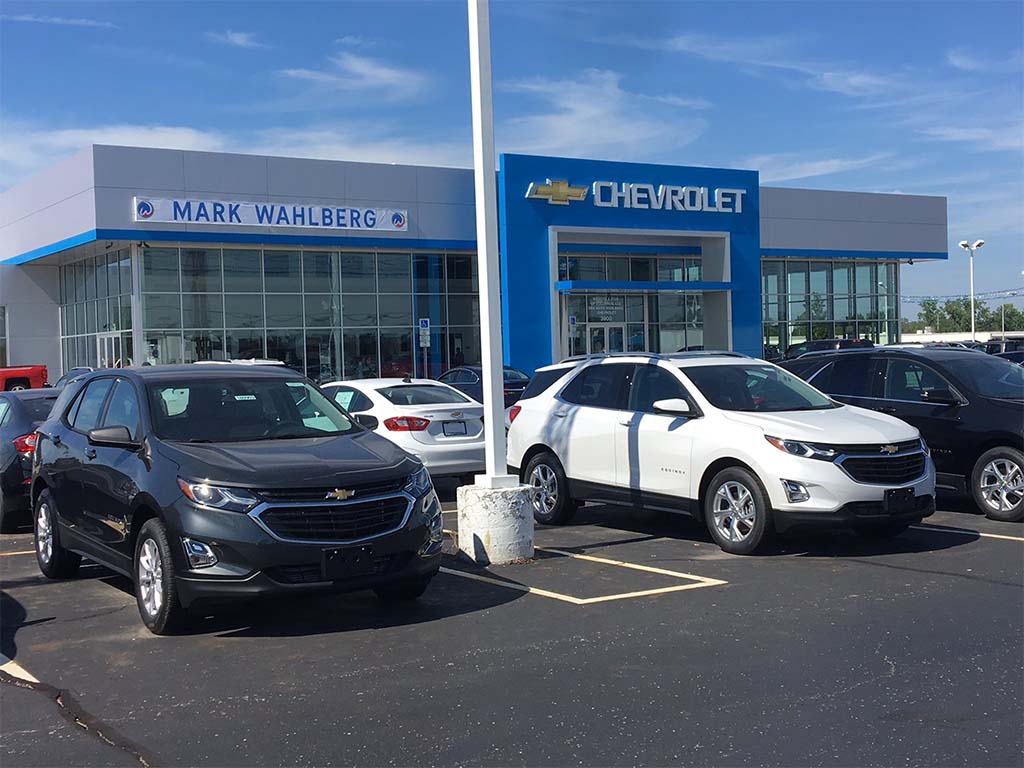Ford Chevy Top Brand Loyalty Rankings but Toyota Takes a Tumble
There’s nothing automakers like more than loyal customers and, with that in mind, Ford and Chevrolet clearly have reason to celebrate the results of S&P Global Mobility’s 2023 loyalty rankings.

The two Detroit automakers were “neck-and-neck” in this year’s study of mainstream brands, Ford with a 59.5% loyalty rate, Chevrolet at 57.1%, according to S&P analyst Tom Libby.
But the news wasn’t nearly as good for Toyota which was a “disappointment” in the new study, Libby said during a media webinar, adding that “We will obviously have to watch the results going forward” to see if Toyota can recover.
Ford’s loyalty rate held roughly flat with its 2022 numbers, but Chevy posted a 2.6-point improvement.
Bringing ’em back
Automakers struggle to keep existing owners coming back, among other things, by offering discounts and other promotions designed to boost loyalty. There are obvious reasons why, starting with marketing costs. Conventional industry wisdom estimates it costs anywhere from seven to 11 times more to “conquest” a buyer from competing brands compared to keeping a buyer in your brand’s fold.

Despite all their efforts, automakers generally have seen loyalty rates drop in recent decades, and the numbers are “down substantially” since pandemic, said Libby. Among mainstream brands, only Mitsubishi, Mazda, Dodge, Hyundai, Buick and GMC posted increased loyal levels in the 2023 study compared with their pre-pandemic numbers.
A variety of factors appear to be at work, including the expanding line-up of product options buyers now have, including some entries into the U.S. automotive market. Toyota, for example, saw 5% of its customers migrate to Tesla this past year, S&P found.
Leading the EV pack
The upstart EV brand topped the luxury segment loyalty charts, according to this year’s study, at 68%. That was a full 18.8 points better than second-place BMW. The Bavarian marque was followed by Mercedes-Benz, Lexus and Cadillac. Notably, Tesla was the only luxury brand that kept more customers than it lost, according to the 2024 loyalty rankings, trade publication Automotive News pointed out.
“The extraordinary clout and success of Tesla” has been changing the business, Libby noted.

Tesla has also generated increased support for EVs, in general, with loyalty to all-electric models standing at 67.8%. Leaving Tesla out, EV loyalty dipped to 49.7%.
But Tesla shouldn’t rest on its laurels, other analysts have pointed out. It’s facing some image problems of its own, TrueCar CEO Mike Darrow recently told TheDetroitBureau.com. Much of that is due to the controversy surrounding the EV brand’s CEO Elon Musk, notably his outspoken political shift to the right since launching his costly bid to acquire social media site Twitter last year.
Some analysts have forecast that Tesla could also begin to see its loyalty dip as more manufacturers get into the EV game. The number of long-range models — those delivering at least 200 miles per charge — surged from around 15 to more than 50 over the last 18 months, according to TheDetroitBureau.com’s data. And it’s expected to approach 100 by the end of 2024. For its part, Tesla hasn’t released a new retail product since 2020 and, at the earliest, isn’t expected to deliver the first of its long-delayed Cybertruck pickups late this year or early in 2024.
But even though that has translated into declining market share for Tesla, its loyalty rate rose by 1.1% in S&P’s latest study.
Auto Lovers Land
Comments
Post a Comment